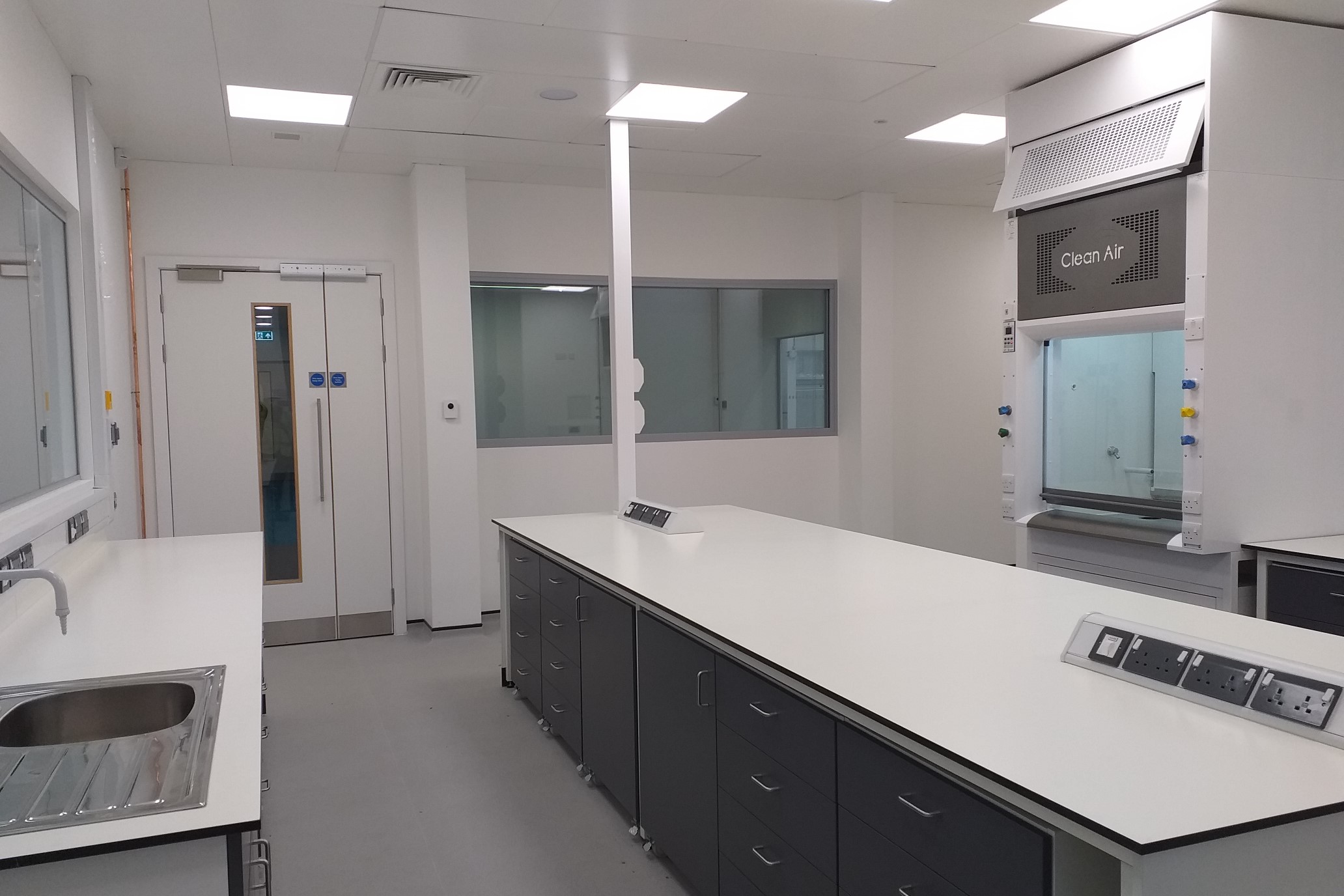
Q: Where are you based?
Harman Barech: I’m based in Birmingham in the West Midlands; but I have worked on projects further afield, many in London.
Q: Tell us about your career path.
HB: In 2005 I enrolled on a degree in quantity surveying at Glasgow Caledonian University. I started working on a part-time basis in 2007, part-way through my studies, with CPC Project Services, and the firm then took me on as a permanent employee once I graduated.
I spent four and a half years there, working mainly on NHS refurbishments and extensions as well as a housing development in the Glasgow suburb of Erskine. I completed my degree in 2009 and enrolled on a distance learning master’s in project management and construction at the same university, believing it would boost my skills further and help me to stand out in a competitive world following the recession.
In 2012 I moved to Exeter, where I spent almost two years working as an assistant quantity surveyor for Faithful+Gould. After a period elsewhere I returned to the company in 2015, this time working in the Birmingham office, where I started as a quantity surveyor before being promoted to senior then managing quantity surveyor.
Earlier this year, I joined Henry Riley LLP as an associate director with a focus on quality and risk.
Q: What kind of projects do you work on?
HB: I have worked on projects across a variety of sectors during my career, but my main focuses in the past eight years have been education and residential.
Notable projects that I’ve worked on include four phases of refurbishment at Petroc College in Barnstaple, Devon, and a refurbishment and extension to an engineering facility for City College Plymouth, a project worth around £4m – both when I was based in Exeter.
The main sector I have experience of, though, is residential. I was the employer’s agent and quantity surveyor on a private rental project on Tidal Basin Road in the Docklands area of London. The development – two towers containing 360 apartments in total – was an £80m scheme. I performed the same role for the same developer on another project worth around £30.5m and with 173 apartments in Acton, west London.
Over the past few years, I’ve been working with the City of Wolverhampton Council to build social and affordable housing in the city. We’ve constructed around 300 homes across a number of projects that are each worth £5–10m.
'When I was growing up I had no idea of what a quantity surveyor did – or that the profession even existed. I think there are still a lot of people who don’t know about it and, as a result, don’t realise that there may be a career for them in the construction industry'

Q: Do you engage with the industry outside your day-to-day work?
HB: When I was growing up I had no idea of what a quantity surveyor did – or that the profession even existed. I think there are still a lot of people who don’t know about it and, as a result, don’t realise that there may be a career for them in the construction industry.
In an attempt to show young people what opportunities there are, I’m a STEM ambassador: I go into schools and present on the diversity of careers in construction. I am passionate about encouraging entrants into the industry and helping students prepare for mock interviews. I’m also a mentor at Thomas Telford School, a city technology college in Wolverhampton.
In terms of RICS, I’m an APC counsellor, assessor and mentor, having recognised the value of passing on my knowledge – particularly for those candidates in small practices who may not have much support.
Q: What is the best part of being a surveyor?
HB: I enjoy going through the design stages pre-contract, all the way through to seeing something come to fruition on site. That makes you feel you’ve actually helped create something that will stand the test of time and ultimately help people.
Taking the Wolverhampton affordable housing project as an example: the housing shortage in the UK is well known, and there are so many people in this country who need support. To be able to work with the council, help the long-term future of the city and, more importantly, help people, gives me a really good feeling. In addition, I worked on a seven-bed autism unit and a 14-bed mental health unit in the city. These projects were very satisfying to complete as they help vulnerable people.
Another aspect of the job I enjoy is working with clients to resolve issues that are a bit different to my day-to-day tasks. I like finding solutions to things I haven’t encountered before.
Q: How do quantity surveyors establish a relationship with clients?
HB: I think quantity surveyors should be involved in a project from as early a stage as possible. When I began my career, architects often tended to get involved first, preparing an initial design, before quantity surveyors were consulted. That meant that the quantity surveyor was providing advice after significant progress had been made, often resulting in abortive work and time.
Now, though, as the construction industry and consultancies have developed, the quantity surveyor is much more integral to the project team, providing advice and cost parameters to work to at inception.
Whether a quantity surveyor or an architect is consulted first, however, the most important thing is collaboration between the project team. My approach is to work very closely with the architect, the engineer and any other disciplines involved to make sure the project is feasible from the outset, and that we closely monitor it together to make sure it stays on track.
The role of a quantity surveyor is constantly evolving. It’s no longer just about the core skills of quantification and costing a project, it’s about offering the most value possible to a client. To do so, we have to be learning constantly and keeping ourselves abreast of new developments in the industry.
Soft skills are also incredibly important, and you gain those through project experience. Facing different challenges and scenarios and working with different people means you get opportunities to learn how to deal with complex issues.
‘My approach is to work very closely with any other disciplines involved to make sure the project is feasible from the outset’
Q: What are the day-to-day challenges of your quantity surveying?
HB: At the minute, it’s making sure that I continue to stay in touch with colleagues and clients despite the changes brought about by remote working. It’s important to continue to provide a good standard of service to clients even though some circumstances have altered due to the pandemic.
It’s also a challenge to keep up to date with regulations and safety guidance which are changing quickly at the moment.
Q: What are your aspirations for the future?
HB: I want to be a part of helping to push equality, diversity and inclusion in construction. Our industry is not as diverse as others and we must do better. Diverse teams are better-performing teams.
When I entered the industry I did not have someone to look at and aspire to be. This is something that is important to young people today – to see someone similar to them and know they can make something happen. I plan to continue engaging with young people and those just getting into our profession to ensure a positive future, so I give back to the industry.
In the longer term I want to move more into the management and operational side of business, still working in construction but looking more at strategy.
Q: Finally, what advice would you give to someone at the early stages of their construction career?
HB: You can make your own career path in the construction industry – take every opportunity that comes your way. Use the early part of your career as a chance to get a breadth of experience across different projects and sectors. Then, once you know what you most enjoy working on, look to specialise.
It’s also important to learn from those around you – pay attention and listen to others in your company or on project teams. You can pick up so much from others.
‘Use the early part of your career as a chance to get a breadth of experience across different projects and sectors'
More in this series
A UK project manager
Alice Pepperell MRICS talks about her love of higher-education projects, and why no two days are alike

